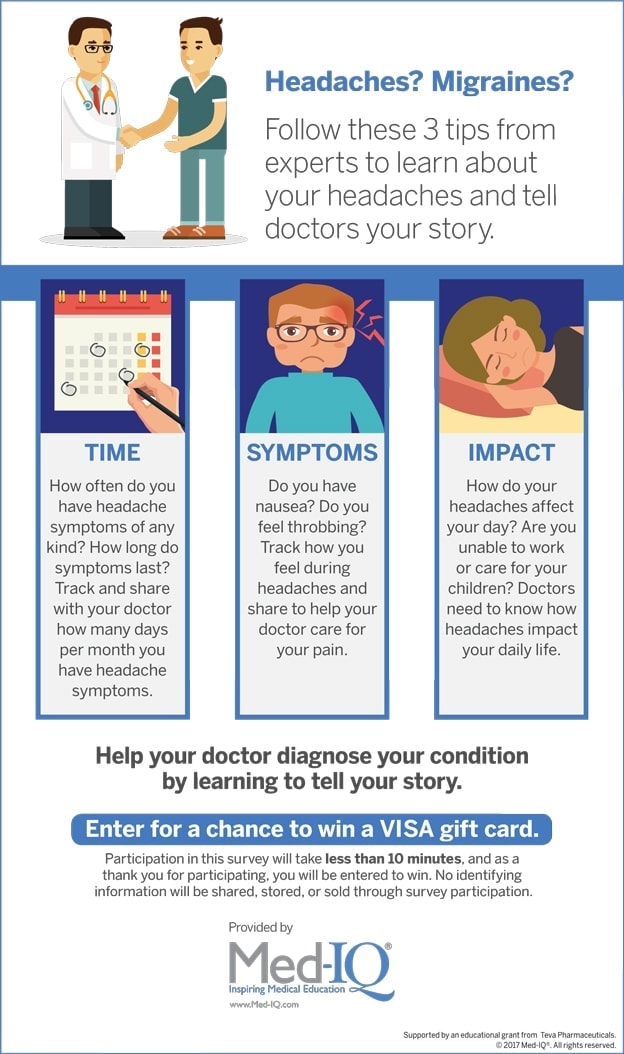
This post is sponsored by Med-IQ and supported by an educational grant by Teva Pharmaceuticals! As always, all opinions are my own. Thank you for sponsoring CityGirlGoneMom!
Long before I was mother to four, I thrived on the hustle, bustle and energy of New York City, forever my mid-twenties muse. I stammered through 70 credits above a Masters degree, all while working in a city that never sleeps. I somehow managed to conquer my grad degree goals, despite experiencing what I thought were debilitating headaches. Years later, learning that my headaches were actually migraines parted the clouds, but not before hijacking many of my young, wild and free college days.
This eye opening diagnosis worried me, and on some days left me feeling isolated. I had ambition running through my veins, and feared that my resilience would ultimately bruise with every migraine that set in. How could someone with so much grit and determination surrender to the dark world of migraines? This was simply not in my playbook.
| Keep reading to learn how you can participate in a ten minute survey to win one of 10 $100 VISA gift cards … |
There’s Never A Good Time For Headaches
From accomplishing educational feats to maneuvering the mines of motherhood, migraines do not fit into my super active, super sized family lifestyle. My husband and four children have become my new reasons to thrive, and outside of my family unit, there’s no time for a wrestling match with a migraine. Wearing the cloak of motherhood is a full time gig, and it stays tightly glued to my skin 24/7.
When my husband and I learned we were pregnant with our first (second, third or was it the fourth?) child, it was naturally the most exciting time in our lives. During that time, I noticed a seismic shift in the rhythm of my migraines. What felt like a never-ending assembly line of pain, shockingly became nonexistant. According to my doctors, the shift in my hormones ultimately suppressed what triggered my migraines. My body loves being pregnant, hence the four little ones. However, as much as I admire and respect my great grandmother, Lucia, for birthing twelve children (and since pregnancy relief is no longer an option), it’s time I start mastering these migraines.









What top headache specialists want you to know about headaches
Taking matters into my own hands, as every audacious ‘City Girl’ does, I recently decided to collaborate with Med-IQ, a continuing medical education company, to help generate awareness around migraines and chronic migraines. It was an honor and a privilege to partner with the following two stellar neurologists in my fight against migraine headaches: Robert G. Kaniecki, MD, Chief, Headache Division & Assistant Professor of Neurology at the University of Pittsburgh Medical Center, and Stewart J. Tepper, MD, Professor of Neurology at the Geisel School of Medicine at Dartmouth and practicing neurologist at Dartmouth-Hitchcock Medical Center.
During our meeting, the docs shared invaluable advice on how to prepare for a doctor’s appointment, and make the most of that critical 15 minutes of facetime. They mentioned that if patients can learn to go to their appointments fully prepared to “tell their story”, then they’ll receive a much quicker diagnosis and a clearer path to prevention and relief. It seems simple, but sometimes while vying for a solution to the pain and inconveniences of migraines, preparation is not top of mind.
Questions your physicians need answered:
- TIME: How many days per month have you had a headache, and for approximately how long do the headaches last?
- SYMPTOMS: Do you have nausea with the headaches? What about throbbing? Any other symptoms?
- IMPACT: How does the headache impact your life? What level of disability do migraines cause? Does it prevent you from going to work or school? Are you unable to take care of your children? Does it inhibit your ability to move through your day? This is critical information to share with your doctor.

What are migraine headaches and what differentiates them from other headaches?
- Untreated migraines last 4 to 72 hours
- Migraines are accompanied by nausea and/or light/sound sensitivity
- One criteria for migraines to be classified as chronic is suffering headache symptoms of any kind occurring 15 or more days of the month
Interesting Fact
Did you know migraine sufferers inherit this condition from a family member? You can pass this along to your kids and migraines can show up in children as young as 10 years old.

Life is busy and so is motherhood.
My role as Mom means more than just kissing boo boos, or packing lunches. It’s a role that requires charging my cape often to inspire, teach, guide, counsel and nurture. As I navigate through these adventures in mothering, spousing, and just being me, there is simply no time for migraines. I encourage you to make a difference by helping the many migraine sufferers out there. Take THIS SURVEY and be automatically entered to win one of 10 $100 VISA Gift Card! And remember, successful migraine management relies on patient education and empowerment.

This post is sponsored by Med-IQ and supported by an educational grant by Teva Pharmaceuticals! As always, all opinions are my own. Thank you for sponsoring CityGirlGoneMom!
YOU MAY ALSO LIKE
SHOP THE LOOKS
Pin This Post









Amazing info city girl! Thank you!!
I just love the pics???
Mia and I both get them…not chronic, but at least once a month. There are some great apps to help you track symptoms, duration and triggers.
oh wow … I need to check those out…. xoxoxox sad to hear your daughter gets them too
Thank goodness my migraines are far and few between. After the babies they are not as frequent. Lucky to know my triggers helped.
sorry you have this too mama